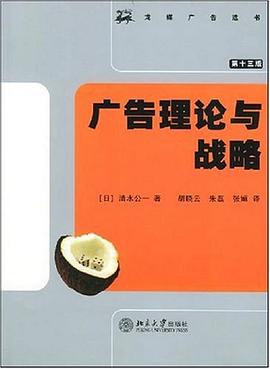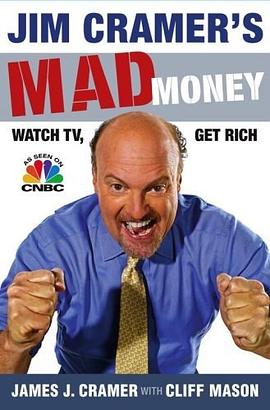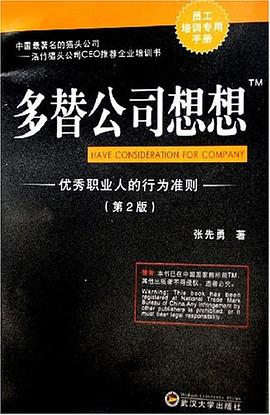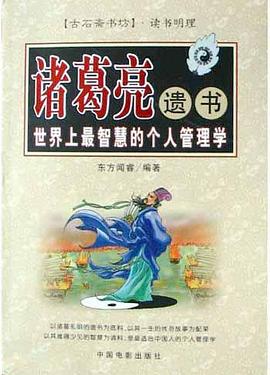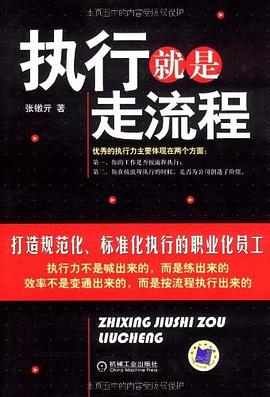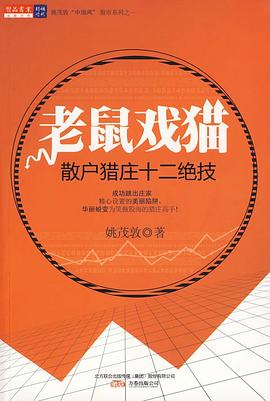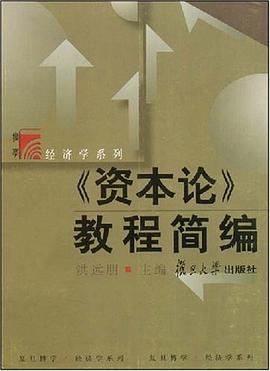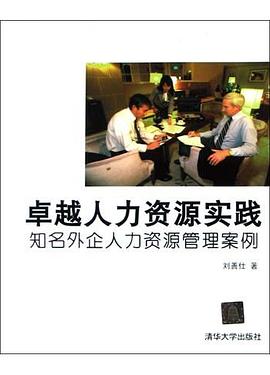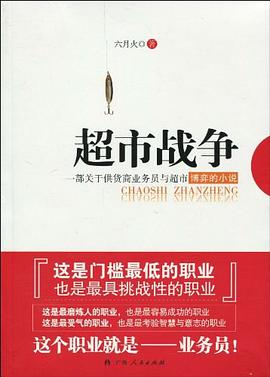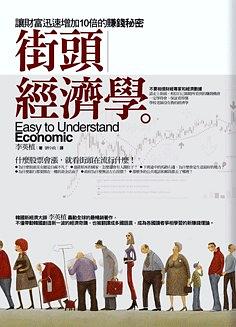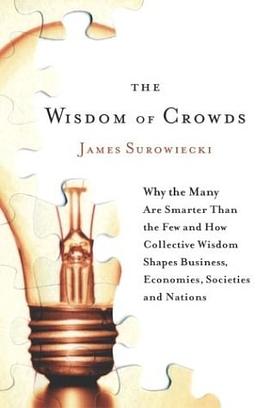

具体描述
“No one in this world, so far as I know, has ever lost money by underestimating the intelligence of the great masses of the plain people.” —H. L. Mencken
H. L. Mencken was wrong.
In this endlessly fascinating book, New Yorker columnist James Surowiecki explores a deceptively simple idea that has profound implications:large groups of people are smarter than an elite few, no matter how brilliant—better at solving problems, fostering innovation, coming to wise decisions, even predicting the future.
This seemingly counterintuitive notion has endless and major ramifications for how businesses operate, how knowledge is advanced, how economies are (or should be) organized and how we live our daily lives. With seemingly boundless erudition and in delightfully clear prose, Surowiecki ranges across fields as diverse as popular culture, psychology, ant biology, economic behaviorism, artificial intelligence, military history and political theory to show just how this principle operates in the real world.
Despite the sophistication of his arguments, Surowiecki presents them in a wonderfully entertaining manner. The examples he uses are all down-to-earth, surprising, and fun to ponder. Why is the line in which you’re standing always the longest? Why is it that you can buy a screw anywhere in the world and it will fit a bolt bought ten-thousand miles away? Why is network television so awful? If you had to meet someone in Paris on a specific day but had no way of contacting them, when and where would you meet? Why are there traffic jams? What’s the best way to win money on a game show? Why, when you walk into a convenience store at 2:00 A.M. to buy a quart of orange juice, is it there waiting for you? What do Hollywood mafia movies have to teach us about why corporations exist?
The Wisdom of Crowds is a brilliant but accessible biography of an idea, one with important lessons for how we live our lives, select our leaders, conduct our business, and think about our world.
作者简介
詹姆斯•索罗维基(James Surowiecki)
《纽约客》杂志特约撰稿人。他的文章见诸很多出版物,包括《纽约时报》《华尔街日报》《艺术论坛报》《连线》杂志和《候选人名单》杂志。索罗维基最初在《纽约客》杂志的“金融专版”阐述了群体智慧的思想,回答了美国社会长期以来对群体智慧和团队决策能力的质疑。
目录信息
读后感
不知道是翻译的问题,还是作者的写作方法比较学术。读起来有点不流畅,不过里面的很多例子是非常好的,至于作者的结论总结之类基本没怎么看
评分本周看的这两本书的主题有一些关联,放在一起评论。 《群体的智慧》是美国的一本畅销书。全书主题就是讲某些情况下群体的智慧高于个体中的专家的智慧。比如估算一头牛的体重,估算一个瓶子里的糖果的数量,群体估算值的平均数一般来所优于大部分个体的估算。并由这个话题延伸...
评分作者举了很多例子证明了,在适当的条件下,群体的智慧是出色的(猜糖豆、电子市场),也举了很多反例,论述了在一些环境中,群体又是非常愚蠢,甚至疯狂的(泡沫、暴民)。在讨论群体的智慧时,本书把问题对象分为三类:认知问题、协调问题与合作问题。 在解决认知问题时,...
评分以下个人观感,主要是对个人独立性的关注,以及脑洞。 倘若按照一定的规则将群体组织起来,获得有效的结果,并以某种方式分析,那么,在存在确定答案的情况下,群体所得出的结论将是可能状况的最优解。 以上是我对此书的总结,书中对每个关键词都佐以了理论阐释和实验及观测...
评分用户评价
这本书的叙事节奏处理得非常老练,它不是那种一板一眼的学术论述,更像是一部引人入胜的历史文献合集,里面充满了关于人类决策失误的精彩轶事。我特别欣赏作者在引入复杂概念时所采用的对比手法。比如,在探讨“群体极化”现象时,他立刻会转到另一个极端——“群体智慧”的成功案例,这种强烈的反差迫使读者不能轻易地下结论,必须在两种看似矛盾的力量中找到平衡点。阅读过程中,我时常会停下来,回想最近参与过的一些决策过程,无论是工作中的项目方向选择,还是朋友间的集体活动策划,都会发现那些微妙的、潜藏的群体动力在起作用。它教会我识别那些“危险信号”,比如当一个群体开始过度自信,或者当意见开始趋于同质化时,那种集体的“愚蠢”可能正在悄然滋生。这本书的价值在于,它提供了一套观察世界的透镜,让你能更清晰地分辨出,哪些是真诚的、分布式的认知,哪些是受社会压力驱动的、虚假的共识。它不是教你如何做一个“更好的群体成员”,而是教你如何更明智地判断何时应该加入,何时应该保持距离。
评分这本书的行文风格充满了老派的绅士风度,措辞严谨,逻辑链条环环相扣,读起来有一种沉静而有力的说服感。它并非那种追求耸人听闻的畅销书,而是脚踏实地的对人类社会现象进行剖析。我特别喜欢它对“信息 Cascades”(信息瀑布)现象的细致描摹,那种一个人因为看到前面的人做了某种选择,便不假思索地跟从,导致整个群体朝着一个方向狂奔的画面,简直是令人不寒而栗。这不仅仅是心理学上的从众,更是信息传播效率和失真程度的问题。通过这本书,我开始关注信息是如何在网络和现实中流动的,以及在信息高度集中的今天,我们如何才能维持必要的“认知多样性”。它迫使我思考,在一个人人都可以发声的时代,如何设计机制来筛选出真正的、有价值的独立判断,而不是被噪音和回音室效应所淹没。这本书对当代数字社会的启示意义巨大,它像一把手术刀,精确地切开了集体决策的复杂肌理。
评分这本书的阅读体验简直是一场思维的探险,它没有给我那种直击要害的“顿悟”,反而像是一次漫长而曲折的旅程,让你在不同的风景中不断审视自己对“群体”的固有看法。初读时,我带着一种天然的怀疑态度,毕竟我们从小被教导要警惕盲从,要相信独立思考的力量。然而,作者巧妙地编织了一系列看似平凡的日常案例,从预测重量的比赛到复杂的市场交易,一步步瓦解了我的防御。我印象最深的是对“聚合的智慧”的阐释,它不是简单地把所有人的意见加起来,而是在特定的条件下,群体内部的随机错误会相互抵消,留下一个比任何个体都更接近真相的估值。这让人不禁反思,我们平日里所推崇的“专家意见”,是否反而因为过度聚焦和信息同质化,失去了这种去中心化的优势?这本书的精彩之处在于,它从未宣称群体总是对的,而是精确地划定了边界——何时群体可以被信赖,以及这种信赖背后的数学和心理学机制是什么。每一次翻页,都像是被推着走出舒适区,去观察那些我们习以为常的集体行为,并用一种全新的、更具批判性的视角去解构它们。
评分坦白说,这本书的后半部分在理论深度上稍微有些吃力,尤其是涉及到统计学模型的部分,对于非专业读者来说,可能需要反复研读才能真正领会其精髓。然而,即便如此,作者依然保持了极高的可读性,通过大量的现实世界案例来“落地”这些抽象的理论。我个人认为,本书最深刻的贡献在于挑战了“精英主义”的傲慢。我们习惯于相信那些受过高等教育、拥有专业头衔的人能做出更优的决策。但这本书通过翔实的数据展示,揭示了在某些特定信息结构下,信息分散、观点多样化的小人物组成的群体,其集体判断的稳健性远超那些被聚光灯聚焦的“权威”。这种对传统权力结构的温柔而坚定的颠覆,是我阅读这本书的最大收获之一。它让我对各种“领导者”的绝对权威产生了健康的怀疑,转而更加珍视那些看似微不足道的、来自不同背景的个体的声音。这本书的价值,在于它为“民主认知”提供了一份坚实的、经验主义的支持。
评分这本书给我带来的最大改变,是一种对“不确定性”的接受和欣赏。在很多领域,我们追求确定性,害怕犯错。但这本书的观点是,正是因为存在误差,群体智慧才得以发挥作用。这种对内在波动的肯定,与现代社会对效率和完美结果的病态追求形成了鲜明的对比。它不是提供了一个可以一劳永逸解决所有决策问题的“万能公式”,而是提供了一套衡量和构建决策环境的原则。例如,在讨论投票机制时,作者对不同方法的优劣进行了细致入微的对比分析,让我意识到,一个好的决策系统,远比一个好的决策者本身更为重要。阅读完后,我不再仅仅关注“谁是对的”,而是开始关注“我们是如何做出这个决定的”,以及“这个决定过程是否具备自我纠错的能力”。这本书对治理、商业乃至日常生活都有深刻的指导意义,它让你从“结果导向”转向“流程导向”,认识到优秀的结果往往是良好流程的副产品,而群体智慧恰恰是这种流程的典范。
评分三个臭皮匠胜过一个诸葛亮。以及这三个臭皮匠的先决条件。
评分三个臭皮匠胜过一个诸葛亮。以及这三个臭皮匠的先决条件。
评分三个臭皮匠胜过一个诸葛亮。以及这三个臭皮匠的先决条件。
评分三个臭皮匠胜过一个诸葛亮。以及这三个臭皮匠的先决条件。
评分三个臭皮匠胜过一个诸葛亮。以及这三个臭皮匠的先决条件。
相关图书
本站所有内容均为互联网搜索引擎提供的公开搜索信息,本站不存储任何数据与内容,任何内容与数据均与本站无关,如有需要请联系相关搜索引擎包括但不限于百度,google,bing,sogou 等
© 2026 book.quotespace.org All Rights Reserved. 小美书屋 版权所有


